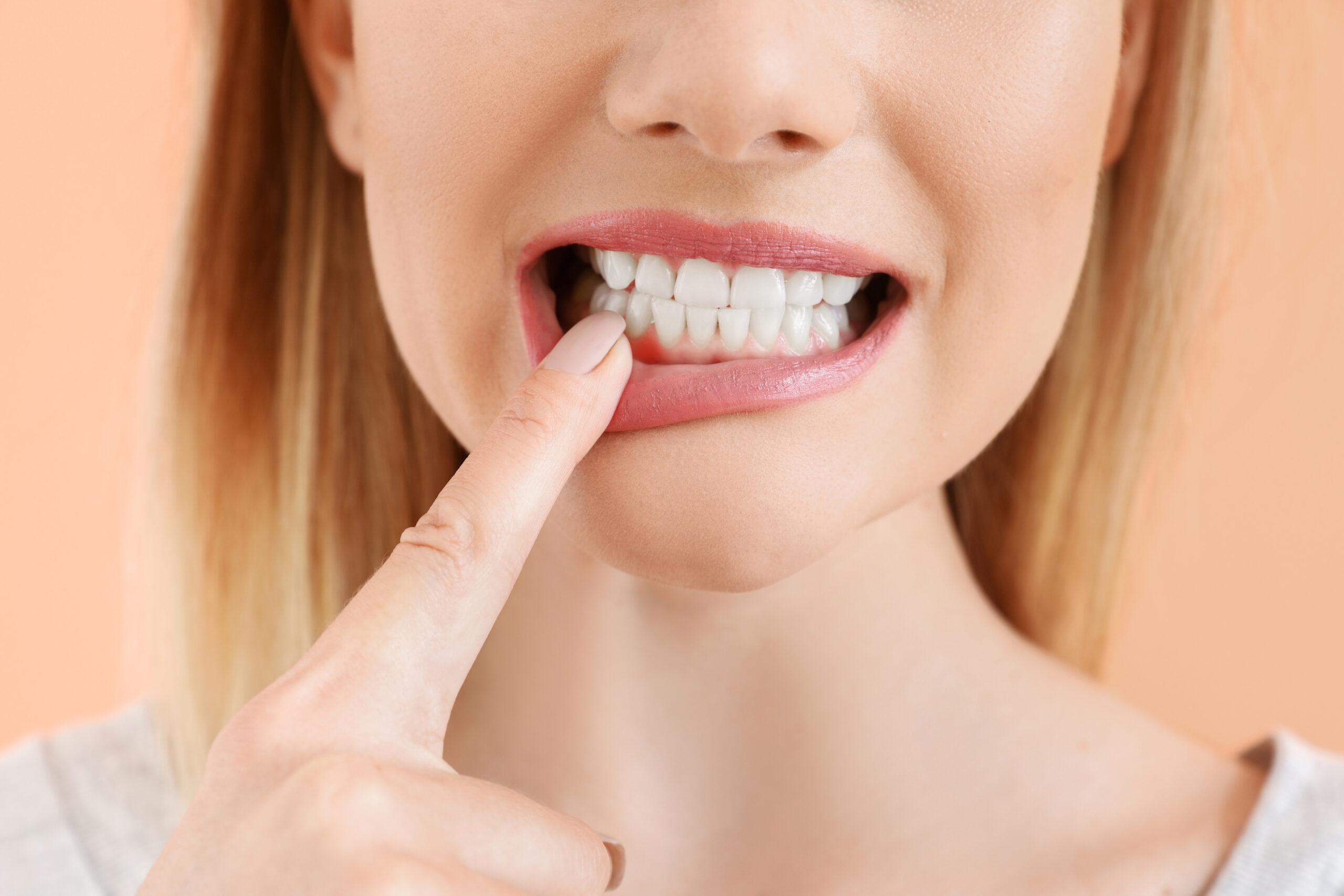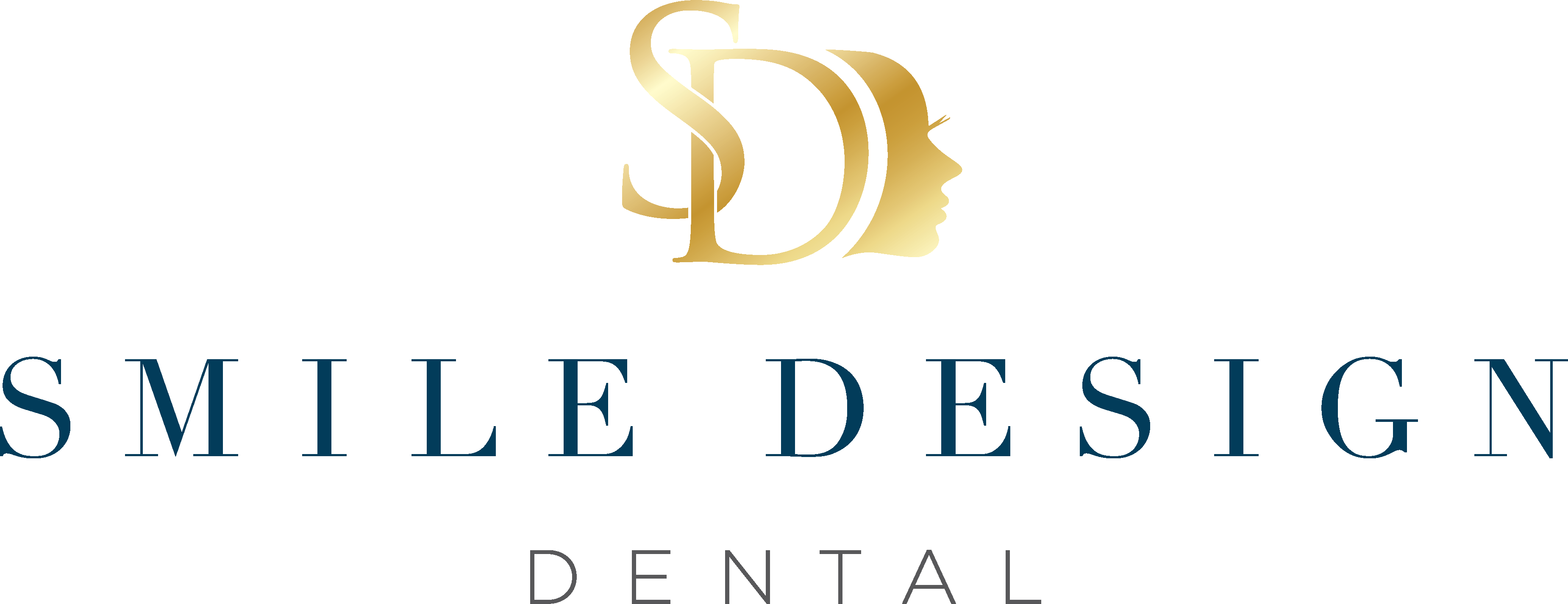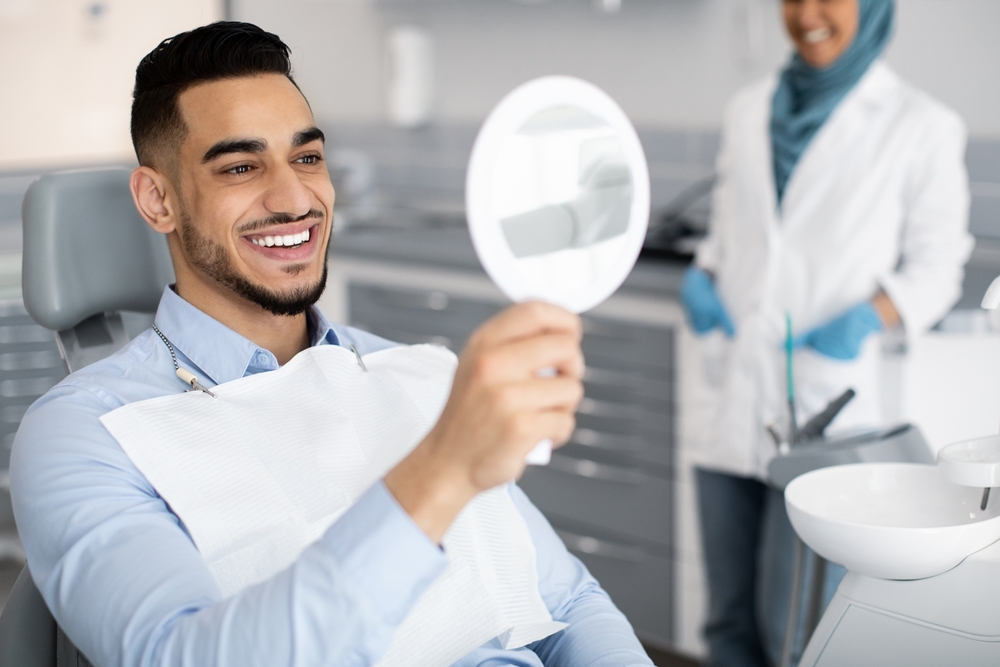
A dazzling smile often begins with teeth whitening, a popular procedure to enhance the brightness of your teeth. While teeth whitening is generally safe, some individuals may experience gum irritation or burns during the process. In this blog, we’ll explore the causes of burned gums from teeth whitening, how to treat the discomfort, and essential tips to protect your gums during the whitening process.
Causes of Burned Gums from Teeth Whitening:
Teeth whitening involves bleaching agents like hydrogen peroxide or carbamide peroxide, which, when in contact with the gums, can lead to irritation or a burning sensation. Additionally, aggressive brushing or excessive pressure on the gums can also contribute to burned gums. This discomfort may manifest as soreness or a whitening of the affected gum area.
Also Read: Can You Use Teeth Whitening Strips While Pregnant?
Also Read: Navigating the Comfort Journey: Do Dental Implants Hurt?
How to Treat Burned Gums from Teeth Whitening:
- Rinse with Saltwater:
- Prepare a saltwater solution and rinse your mouth for about 30 seconds. This helps remove excess bleaching agents and soothes gum irritation.
- Apply Cold Compress:
- Use a cold compress by wrapping ice cubes in a cloth and applying it to the affected area. Cold compression helps reduce the burning sensation and swelling.
- Over-the-Counter Medications:
- Over-the-counter pain relievers can help alleviate pain and inflammation caused by burned gums. Follow the recommended dosage and consult a dentist if needed.
- Consult with a Dentist:
- If the pain persists, seeking professional dental advice is crucial. A dentist can provide tailored treatment to address the burned gums effectively.
Protecting Burned Gums During Teeth Whitening:
- Consult with a Dentist:
- Before attempting any at-home teeth whitening, consult with a dentist to ensure the safety and suitability of the chosen method.
- Use Custom Whitening Trays:
- Opt for custom whitening trays that fit your mouth well to minimise contact between the whitening agent and gums.
- Sensitive Toothpaste:
- Use sensitive toothpaste to reduce pain and irritation around the gums. This can be particularly helpful during and after teeth whitening.
- Avoid Irritating Foods and Drinks:
- Steer clear of foods and drinks that may exacerbate gum pain. Opt for a soft diet and use a straw to minimise contact with the affected gums.
- Follow Instructions Carefully:
- Adhere strictly to the instructions provided with the whitening product to reduce the risk of gum burns. Avoid leaving the product on longer than recommended.
Also Read: What Can I Eat After Wisdom Tooth Extraction?
Also Read: Illuminating Smiles: Unveiling Brisbane’s Premier Teeth Whitening Options
Conclusion:
Teeth whitening is an effective way to achieve a brighter smile, but it’s essential to be mindful of potential side effects such as burned gums. Taking immediate action using home remedies and following preventive measures can help manage discomfort. If symptoms persist, seeking professional advice from a Teeth Whitening Brisbane dentist is recommended for proper treatment.
Frequently Asked Questions (FAQs):
- Can teeth whitening cause permanent damage to gums or enamel?
- Excessive or improper use of whitening products can potentially cause lasting damage to gums or enamel. Always adhere to recommended guidelines and consult with a dentist if you experience persistent discomfort.
- What should be avoided to speed recovery from burned gums after teeth whitening?
- To expedite recovery, rinse your mouth to remove whitening agents, apply a cold compress, stick to a soft diet, and consult a dentist if the pain is intense.
- How do we ensure a safe whitening experience?
- Avoid leaving whitening products on for an extended period, follow recommended guidelines, and consult with a dentist for a safe and effective teeth whitening experience.
Disclaimer: The information provided in this blog is for informational purposes only and is not intended as medical advice. It is essential to consult with a qualified dental professional or healthcare provider for advice tailored to your specific oral health needs. Any reliance on the information provided in this blog is at your own risk. The authors and publishers of this blog are not responsible for any consequences that may arise from the use of the information herein. Always seek the guidance of your dentist or healthcare provider for accurate and personalised information regarding your dental health.


